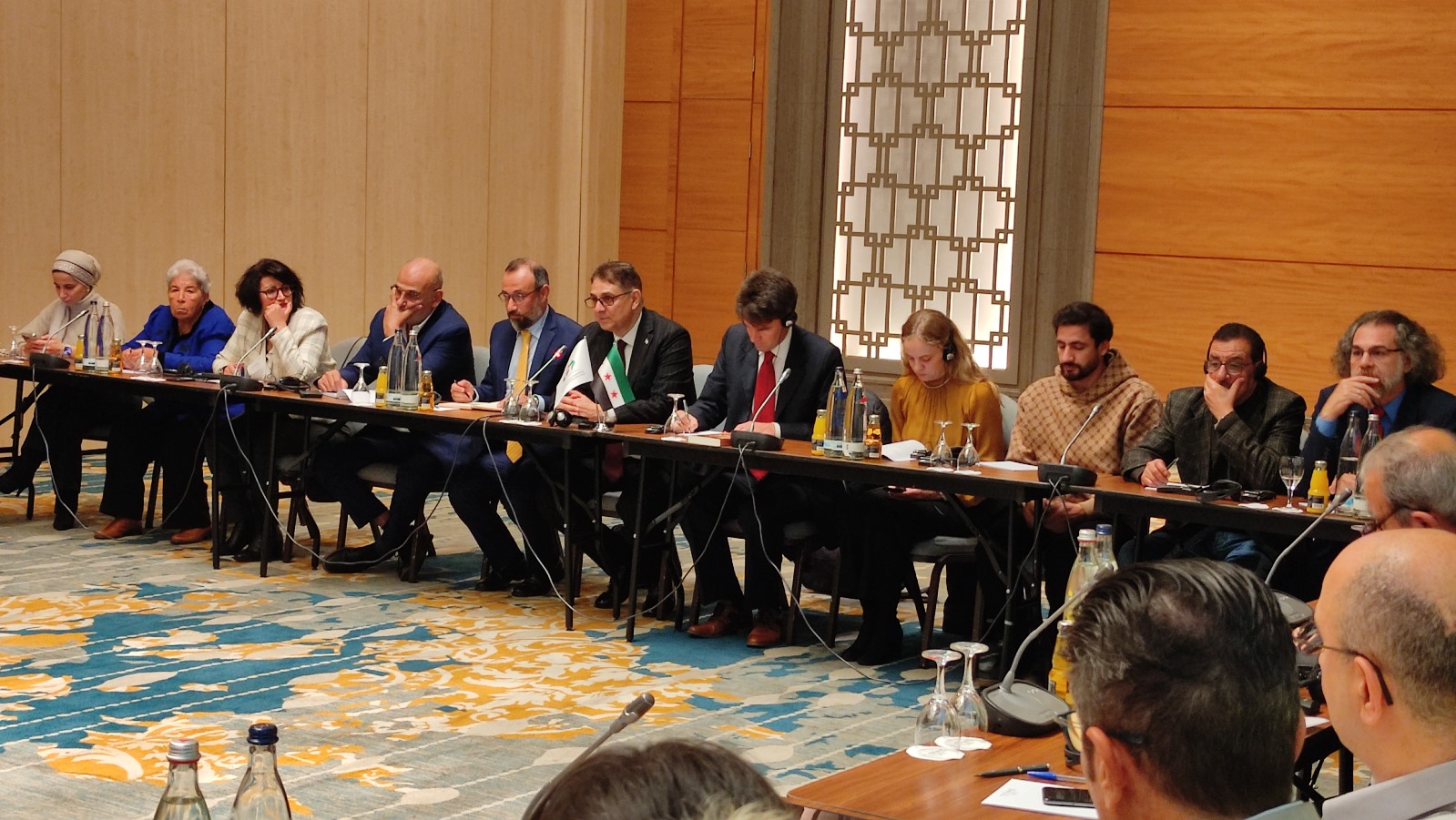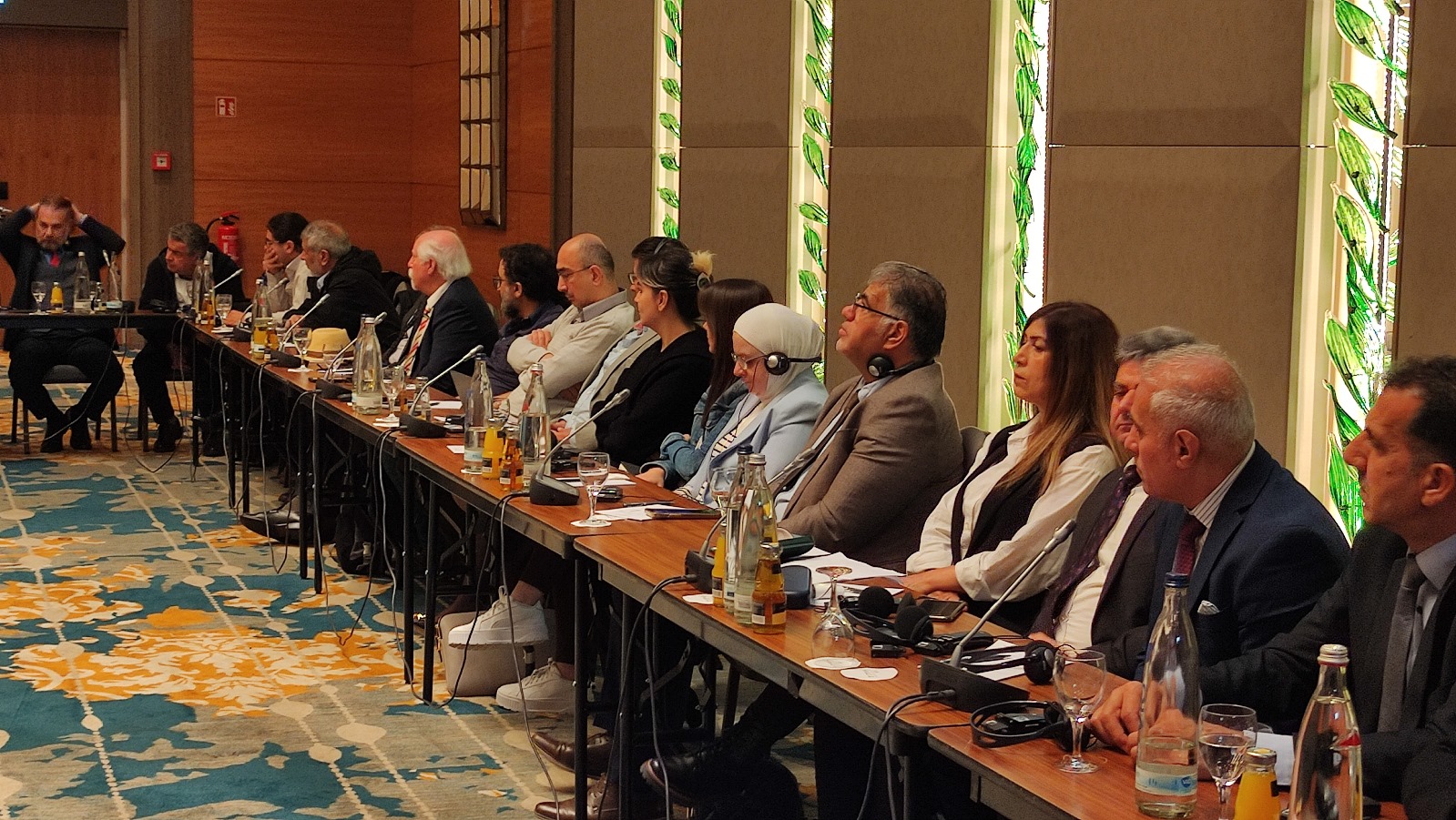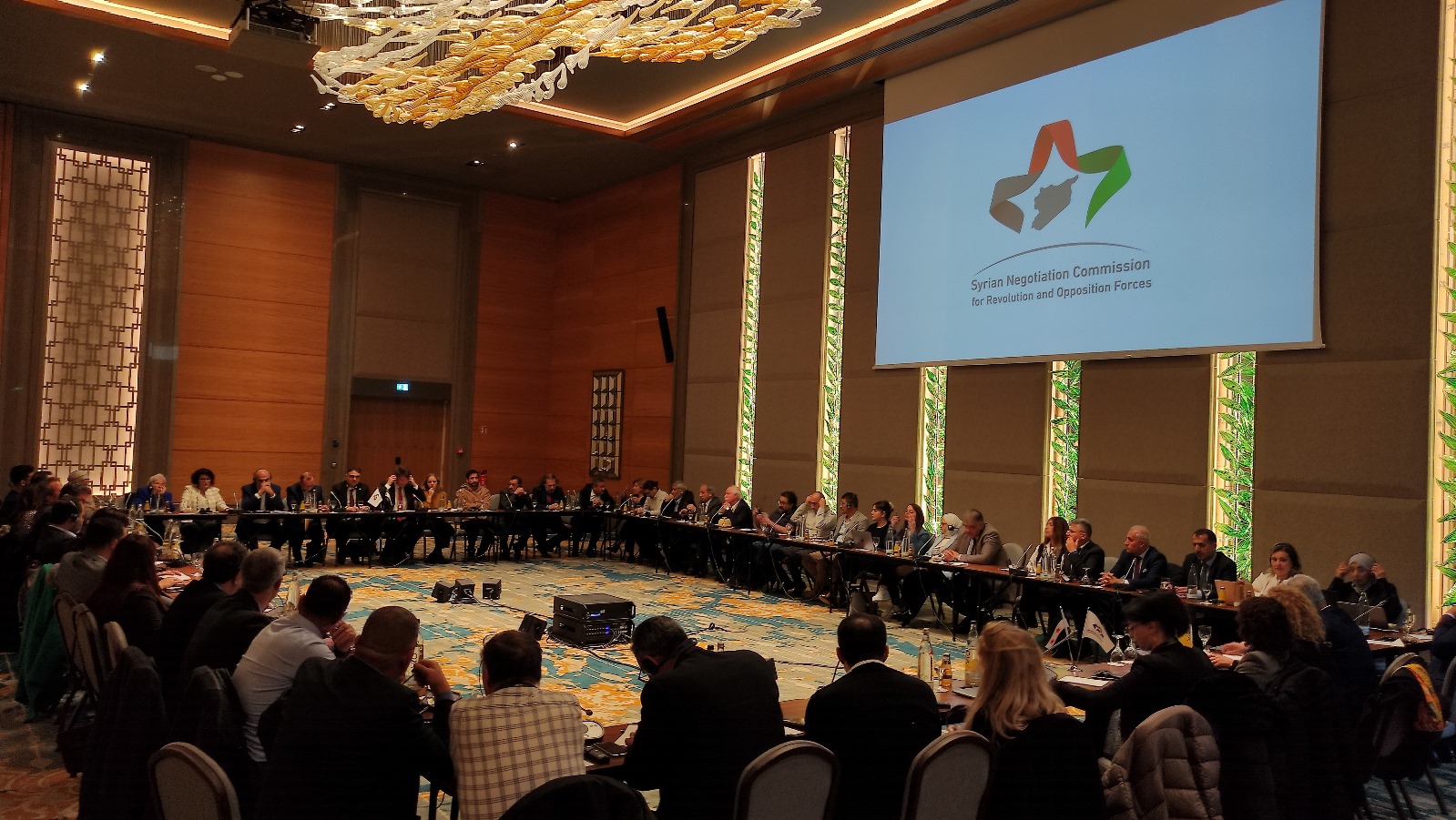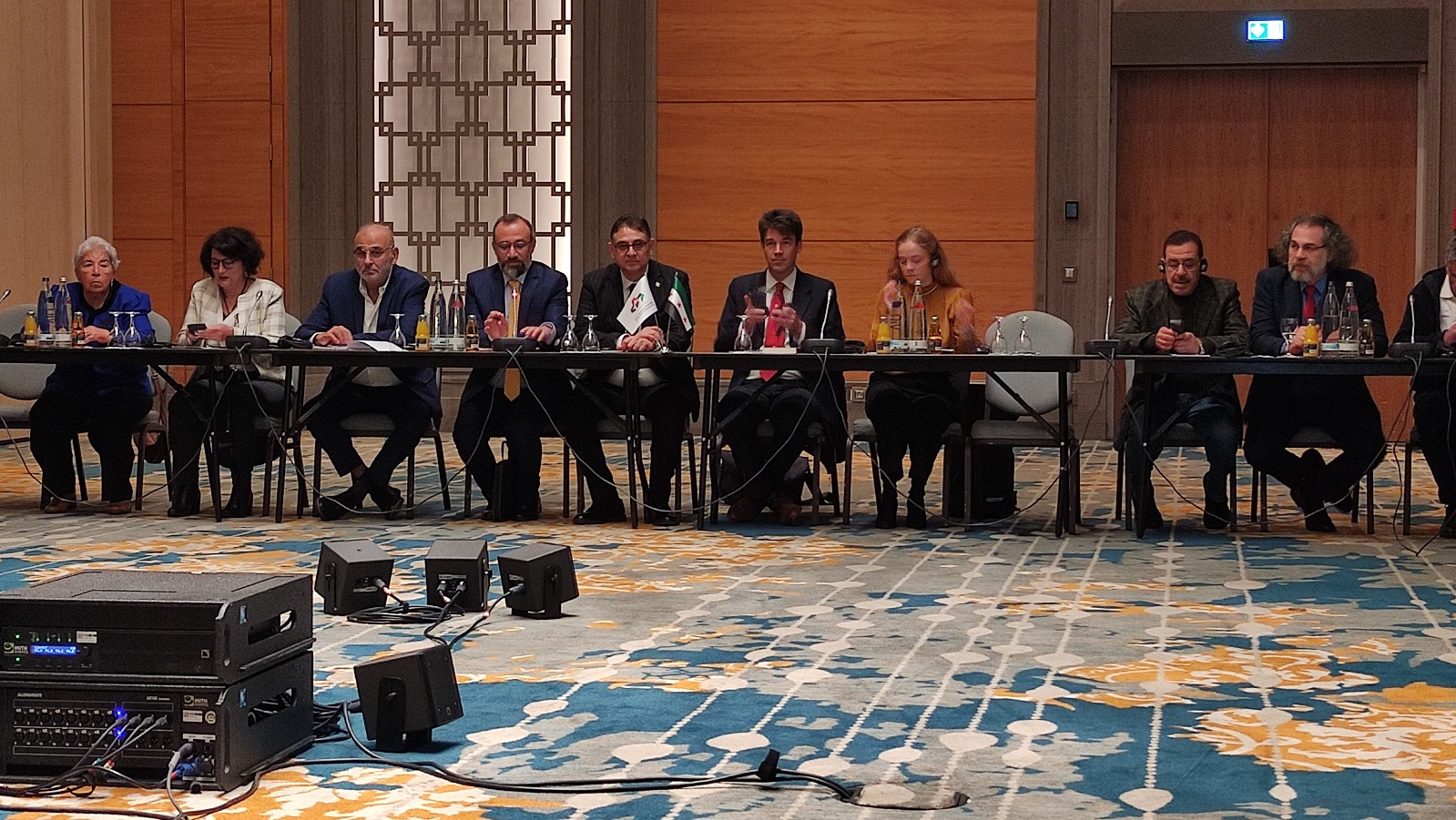Negotiation Commission Engages with Syrians in Berlin on the Political Solution
Stefan Schneck: We Appreciate the Commission’s Commitment to Consult with Civil Society

October 4, 2024
German envoy to Syria, Mr. Stefan Schneck, praised the Syrian Negotiation Commission’s efforts to engage in dialogue and consultation with Syrian civil society, both within Syria and among refugees. He deemed this initiative crucial for fostering greater progress and consensus among Syrians through discussion, reducing differences in perspectives, and reaching shared understandings.
During a two-day dialogue session organized by the Syrian Negotiation Commission today (Friday) in Berlin, which was attended by the Commission’s President Dr. Badr Jamous, along with members Jamal Suleiman, Alice Mufrej, and Ibrahim al-Jabawi, the German envoy reiterated that Germany considers itself a partner to the Syrian opposition and to the Syrian people, and will continue to be so until a political solution is achieved in accordance with international resolutions.
He emphasized that the European Union and the German government remain committed to the “three no’s” regarding Syria: no normalization with the Syrian regime, no lifting of sanctions, and no reconstruction efforts as long as the regime continues to refuse to comply with the political solution outlined in UN Resolution 2254. He affirmed that there will be no shifts in this position.
Mr. Schneck also expressed Germany’s support for addressing all the consequences of the Syrian war, including accountability and justice. He noted that the situation for Syrians in Germany is stable, highlighting the successful integration of the majority of Syrians into their new communities.
He pointed out that some European countries that have taken a different stance on normalization represent individual positions and do not reflect the consensus within the European Union. He also mentioned that the Arab approaches to this issue have proven to be ineffective.
Furthermore, he discussed Germany’s commitment to ensuring that aid reaches all Syrians in need, emphasizing the importance of implementing controls and transparency in the distribution of aid. He noted that these measures are applied in various regions of northern Syria but not in regime-controlled areas. He stressed that such humanitarian assistance must not undermine the political process and is not a substitute for a comprehensive political solution, which is urgently needed in accordance with Resolution 2254.
Media Office



